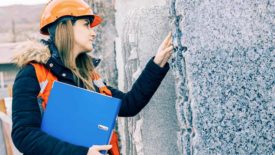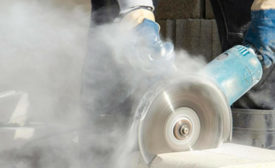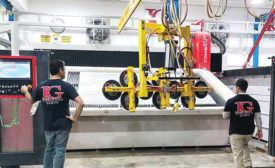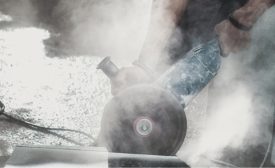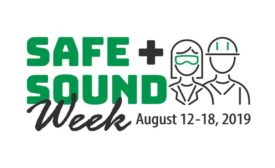Home » Keywords: » safety initiatives
Items Tagged with 'safety initiatives'
ARTICLES
An expert professional in the fields of threat assessment and the prevention of violent crime provides advice to business owners to ensure they run a safe and successful company
Read More
OSHA Inspections and Safety with Jeff Courtright
Jeff Courtright, safety coordinator for Planet Granite, discusses safety for employees as well as the biggest issues OSHA finds during an inspection.
January 1, 2022
Safety
Safety Precautions at the Jobsite
Safety training protects people with established procedures and best practices, reminding workers of jobsite hazards and how to prevent them.
September 23, 2021
Going fully automated in stone fabrication
Stone World sits down with Egon Hinss, national sales manager of Breton USA, to discuss the process of transitioning to a fully or semi-automated fabrication shop
June 1, 2020
Dealing with silicosis in Australia
After Australia’s first death from silicosis, the country, companies and employees have come together to fight the problem of this life-threatening condition
March 11, 2020
Get our new eMagazine delivered to your inbox every month.
Stay in the know on the international stone industry trends.
SUBSCRIBE TODAYCopyright ©2024. All Rights Reserved BNP Media.
Design, CMS, Hosting & Web Development :: ePublishing


